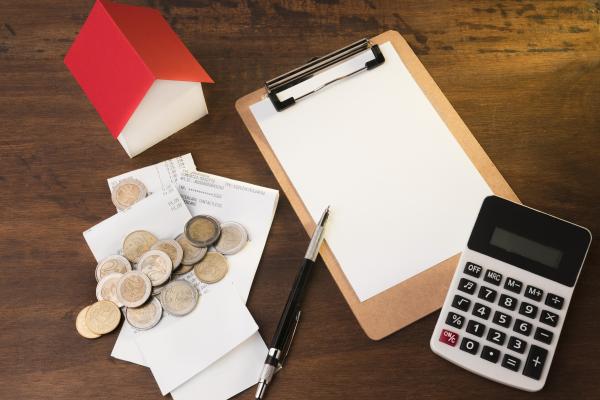- May 09, 2025
- Investment
- 403
Understanding the Role of Escrow Accounts in Off-Plan Projects
Off-plan property purchases in Dubai continue to attract investors with flexible payment plans, early-buyer incentives, and promising long-term value. But what gives buyers peace of mind when investing in a property that hasn’t yet been built? One of the most important legal and financial protections in place is the escrow account.
Escrow accounts are more than just a regulatory requirement — they are the backbone of buyer trust in Dubai’s off-plan real estate market. This guide takes a clear, in-depth look at how they work, why they matter, and how they directly impact both buyers and developers.
What Is an Escrow Account?
In the context of off-plan real estate, an escrow account is a secure, government-monitored bank account where all payments from buyers are deposited and held until construction milestones are met. The account is project-specific — meaning the funds can only be used to build the exact property buyers have invested in.
These accounts are managed and overseen by the Dubai Land Department (DLD) and are legally required for any off-plan project sold in the emirate.
Why Escrow Accounts Exist: Buyer Protection First
Off-plan projects involve paying for something that doesn’t exist yet, which naturally raises concerns about risk. In response, Dubai introduced the escrow system to:
Ensure buyer funds are not misused
Prevent developers from using deposits for unrelated projects
Guarantee that money is released only when specific construction targets are completed
This structure minimizes the risk of abandoned or severely delayed projects — a problem that was more common in the early stages of Dubai’s real estate boom before escrow laws were introduced.
How Escrow Accounts Actually Work
1. Project Registration
Before a developer can begin selling off-plan units, they must register the project with the DLD and open a dedicated escrow account with an approved bank. The registration includes verified project documents, land ownership proof, and estimated timelines.
2. Buyer Deposits Go Directly to Escrow
Once sales begin, buyers make their payments — whether deposits or installments — directly into the project’s escrow account, not to the developer’s personal or business account.
3. Controlled Fund Release
Funds are not handed to the developer freely. Instead, money is released in phases, based on verified construction progress. Independent consultants inspect and report on development stages, and only then can a portion of the funds be disbursed.
4. Final Payments on Handover
In most cases, the final percentage of the property price is only payable once construction is completed and the handover is ready. This incentivizes developers to complete projects on time and as promised.
Benefits of Escrow Accounts for Buyers
Enhanced Financial Security
Your investment is protected from being redirected or mismanaged. The funds are held in trust and can’t be accessed unless the project meets specific, pre-approved stages.
Greater Project Transparency
Buyers have access to clear documentation and progress reports. This transparency builds trust and keeps developers accountable for quality and timelines.
Legal Recourse
In the event of a dispute or project delay, having your funds in escrow gives you leverage. Authorities can intervene and freeze access to the account if the developer fails to deliver on agreed terms.
Encourages Credible Developers
The escrow requirement filters out developers without the financial discipline or planning capacity to handle a project. Only licensed, qualified developers with a proper track record can proceed.
What Developers Must Do to Comply
Developers are required to:
Submit detailed architectural and engineering plans
Prove land ownership and full project scope
Maintain proper accounting of the escrow account
Deliver progress reports to receive staged payments
Complete the project within the timeframe filed at registration
Failure to follow these guidelines may result in penalties, license suspension, or project cancellation. This pressure ensures developers stay aligned with legal and construction standards.
How Buyers Can Verify an Escrow Account
Buyers can and should check that a property is legally registered and has an escrow account before making any payments. Here’s how:
Request the project’s escrow account number from the developer
Confirm the developer’s registration with the real estate authorities
Review the payment schedule and ensure it aligns with official milestone approvals
Being proactive gives you an extra layer of confidence and ensures you’re dealing with a legitimate developer.
What Happens If a Project Fails?
In rare cases, if a project is canceled, the escrow account becomes a safety net. The funds remaining in the account are used to either:
Refund buyers according to the percentage they’ve paid, or
Transfer the project to another developer for completion, depending on the situation and feasibility
In either case, the buyer is not left without options. The escrow system provides structure for recovery and fairness in such outcomes.
Final Thoughts
For anyone considering an off-plan property in Dubai, understanding escrow accounts is not optional — it’s essential. These accounts represent one of the most robust legal protections available in the real estate market today.
They safeguard your funds, create transparency in the development process, and hold developers accountable to timelines and promises. Whether you're a first-time buyer or an experienced investor, making sure your chosen property is supported by a properly managed escrow account should be at the top of your checklist.
In a city known for rapid growth and iconic developments, escrow accounts help ensure that ambition is grounded in trust, regulation, and long-term buyer confidence.
Popular Categories
Popular Posts

Understanding Ejari: Essential for Renters in Dubai



